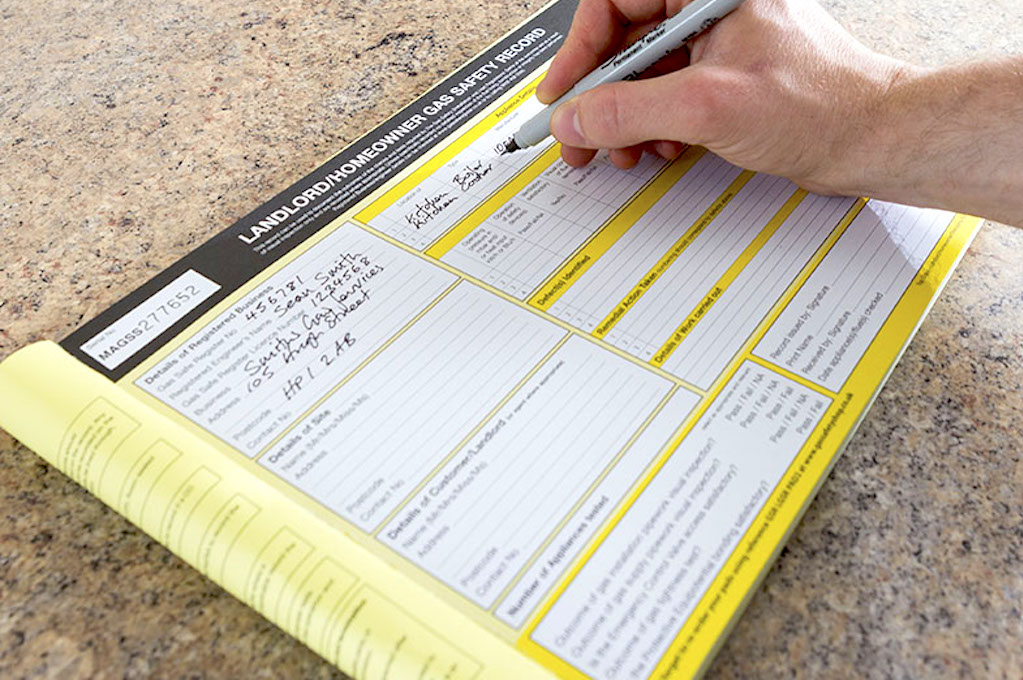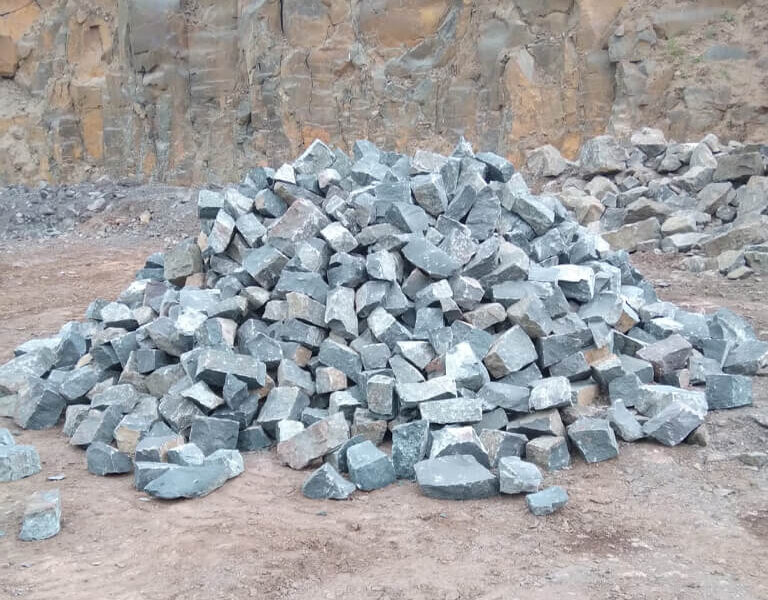A Gas Safety Certificate typically lasts for one year( 12 months). It’s obtained after a registered gas safety engineer conducts an annual inspection to ensure gas appliances are safe and functioning properly. This certificate includes details such as the inspection date, property address, landlord’s information, and engineer’s signature.
Moreover, it confirms that gas appliances meet safety standards and do not pose any risks, like gas leaks or carbon monoxide dangers. Once issued, the certificate remains valid for 12 months from the inspection date. Landlords must renew the certificate annually to comply with legal requirements and ensure the safety of their tenants.
What Is A Gas Safety Check?
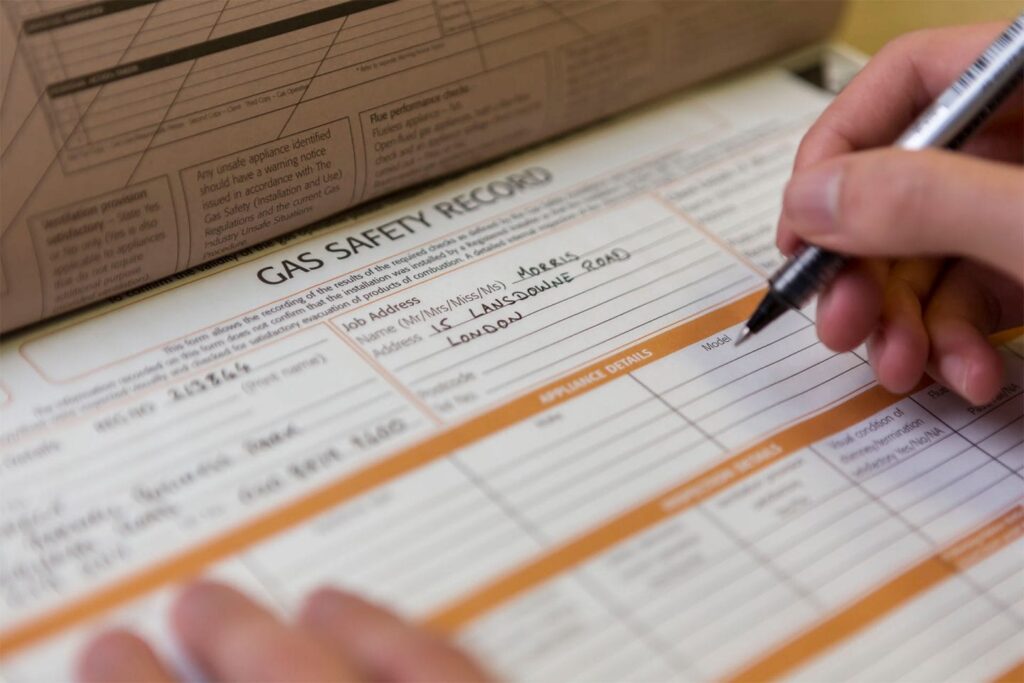
A gas safety check is a yearly inspection to make sure gas appliances at home are working safely and not leaking gas. Gas Safe engineers do this to prevent carbon monoxide dangers.
Moreover, they check if appliances are connected properly, working well, and have no leaks. This check only looks at gas appliances. A full gas installation safety check is more thorough, checking all gas installations and pipes for leaks.
What is a CP12 Gas Safety Certificate?
A CP12 Gas Safety Certificate, also known as a Gas Safety Record, is a crucial document provided to landlords in the UK. It’s issued after a gas safety inspection has been conducted on their rental properties
This certificate details all the inspections carried out by a Gas Safe registered engineer on gas appliances owned by the landlord. It is important to highlight that if a tenant owns any gas appliances. For example, a gas cooker does not need to be included in the inspection.
It’s worth noting that Gas Safety Records are specifically required for rented accommodations. Homeowners are not mandated to keep records of appliance checks or full gas installation safety checks, although it’s still recommended. It’s advisable to have these inspections performed annually by a Gas Safe engineer.
What Are The Factors Affecting Duration?
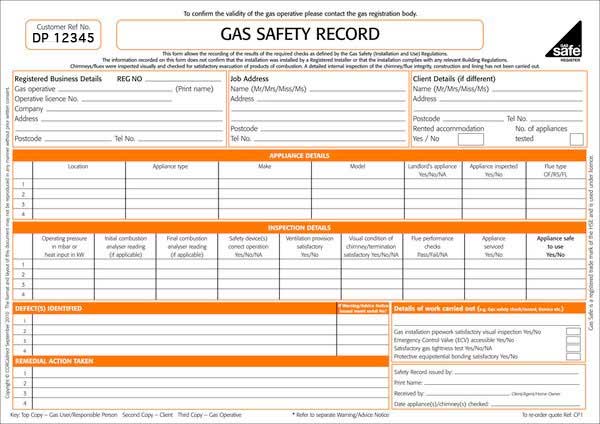
Several factors can influence the duration of a Gas Safety Certificate:
Legislation and Regulations
The duration can be determined by legal requirements set forth by government regulations or local authorities. In the UK, for example, Gas Safety Certificates typically need to be renewed annually.
Type of Property
The size and complexity of a property’s gas system can influence the duration of a Gas Safety Certificate. Larger properties or those with multiple gas appliances can require more extensive inspections, potentially leading to a shorter validity period for the certificate.
Properties with complex heating systems, such as those with underfloor heating or multiple boilers, can require additional time for inspection. This ensures all components are functioning safely.
Type and Condition of Gas Appliances
The age and condition of gas appliances can impact the frequency of inspections. Older appliances or those prone to faults can require more frequent checks to ensure safety.
Tenant Turnover
Properties experiencing frequent tenant turnover can require more frequent gas safety inspections. New tenants bring varied usage patterns, impacting gas appliances differently, and requiring regular checks to maintain safety standards.
Landlords can opt for inspections between tenancies to ensure gas appliances are in proper working order before new tenants move in.
Landlord’s Obligations
If previous gas safety inspections found faults with gas appliances, more frequent checks can be necessary to monitor and address these issues.
This ensures that any identified safety hazards are promptly rectified to prevent potential risks to tenants.
Gas Safe registered engineers can recommend shorter intervals between inspections if they identify recurring issues or ongoing repairs. This ensures that the property remains compliant with safety regulations.
Previous Inspection Findings
If previous inspections have identified issues or faults with gas appliances, more frequent inspections can be necessary. This ensures continued safety until those issues are resolved.
Type of Tenancy Agreement
The terms of the tenancy agreement between the landlord and tenant can impact the frequency of gas safety inspections. Some landlords can include clauses in the agreement requiring inspections more frequently than legally mandated as an additional safety measure.
What Is Needed For Gas Safety Certificate Issuance?
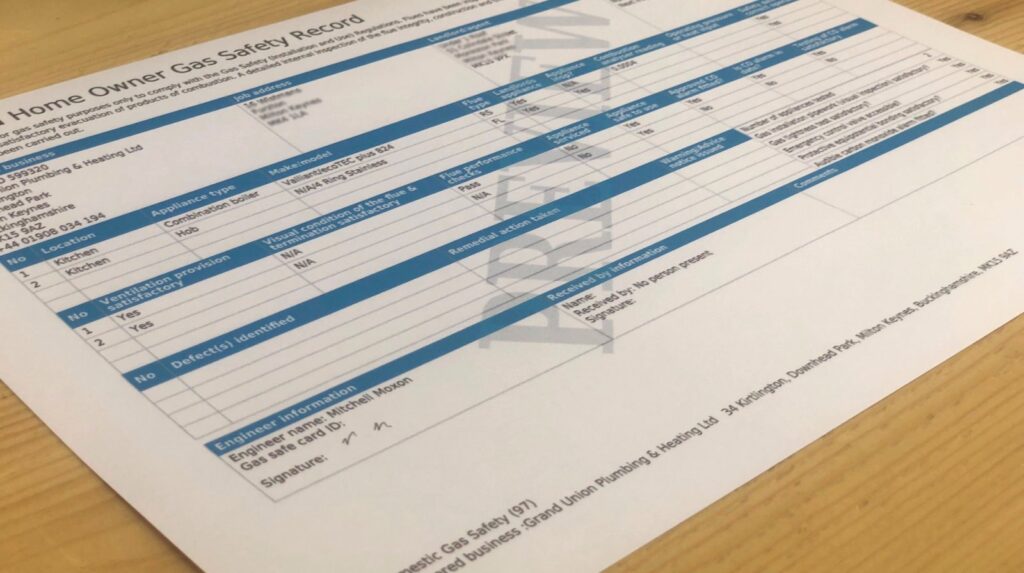
A Gas Safety Certificate is issued following a successful annual gas safety check conducted by a registered gas safety engineer. This certificate contains essential information such as the inspection date, property address, landlord’s name, engineer’s details, and signature. It also includes details of all gas appliances inspected, their locations, and their current status.
Appliances are categorized as follows:
- ID (Immediately Dangerous): Appliances needing urgent repair or replacement.
- AR (At Risk): Appliances requiring urgent replacement as they are not safe for use.
- NCS (Not to Current Standards): Appliances safe for use but not meeting current standards, recommended for replacement soon.
Upon completion of necessary repairs or replacements, the gas safety engineer provides the Gas Safety Certificate within 48 hours, usually in digital format. Landlords must provide a copy to current tenants within 48 hours of the inspection. Additionally, they must provide it to new tenants within 28 days of the lease agreement.
Why Is Gas Safety Certificate Renewal Important?
Landlords can also choose to conduct more frequent inspections as part of their duty of care to tenants. This is particularly important if they have vulnerable or elderly tenants. Additionally, it’s necessary if the property is used for short-term rentals where appliances are in constant us.
Renewing your gas safety certificate is super important for a few key reasons. First off, it’s the law in many places. Landlords and homeowners are often required by law to make sure their gas appliances are safe and regularly checked. If you don’t renew your certificate, you could end up facing fines or even legal trouble.
But beyond just following the rules, renewing your certificate is all about keeping people safe. Gas appliances, if not properly maintained, can be seriously dangerous. Renewing the certificate means getting a thorough check-up of all your gas stuff to catch any potential problems before they become disasters. It’s about making sure your home or property is a safe place to live or work.
Plus, having an up-to-date certificate is often required by insurance companies. If something goes wrong and you don’t have a valid certificate, your insurance cannot cover the damages. So, renewing your certificate helps protect your finances too.
And let’s not forget about the value of your property. If you ever want to sell or rent out your place, having a valid gas safety certificate can make it more appealing to potential buyers or tenants.
It assures the property’s safety regarding gas appliances. It shows that you’ve taken the necessary steps to keep the place safe and well-maintained. So, whether it’s about following the law, keeping people safe, protecting your finances, or maintaining the value of your property, renewing your gas safety certificate is a smart move.
What are the penalties for not having a Gas Safety Certificate?
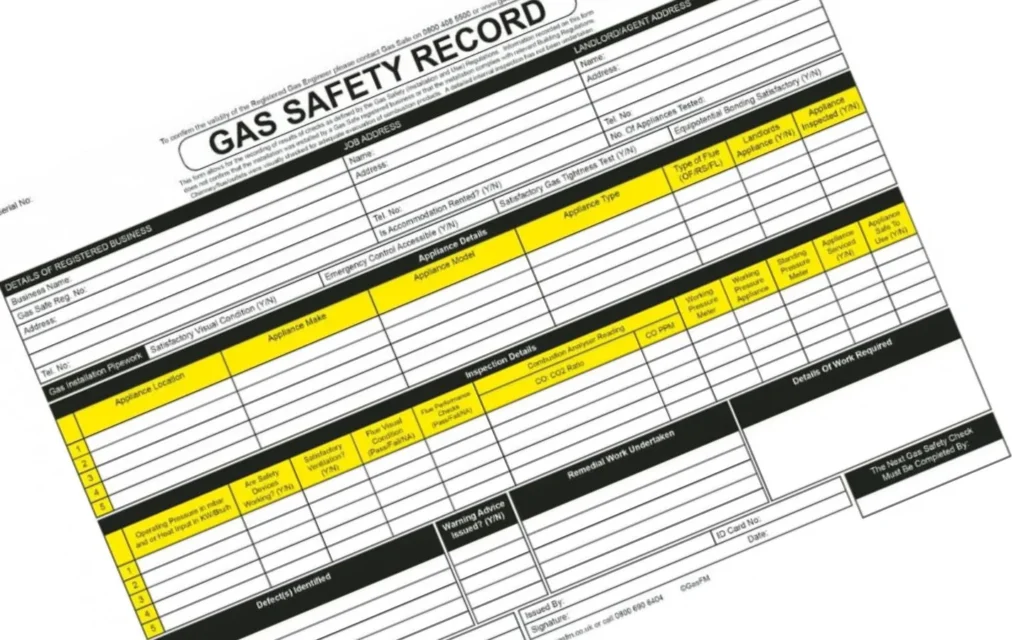
Failure to obtain a Gas Safety Certificate as a landlord in the UK carries severe consequences. These penalties can include:
- Invalidation of your insurance policy.
- Fines of up to £6,000.
- Court proceedings if a tenant brings civil claims for damages.
- Potential imprisonment for up to six months.
- Manslaughter charges in case of a tenant’s death resulting from an unsafe gas appliance or system.
FAQ’s
How long does a gas test last?
A gas test lasts for 12 months from the date of registration on the Gas Safe Register, which must be renewed annually to continue performing gas work legally.
How do you check gas test?
Gas detectors are checked through a process called bump testing. In bump test mode, the gas detector is exposed to a gas, and then it cycles through each sensor or all sensors at once, depending on the device’s settings. After the test, the monitor displays results indicating whether it passed or failed the bump test.
Why is a gas test required?
Gas testing is necessary, especially for hot work activities involving flammable gases, to comply with legal requirements and ensure the health and safety of workers. It helps identify and assess risks associated with flammable gases, thus preventing potential accidents or hazards.
Final Words
Ensuring a valid Gas Safety Certificate is crucial for landlords to guarantee the safety of their tenants.
This certificate lasts for one year after a thorough inspection by a registered gas safety engineer. It confirms that gas appliances are safe and free from potential hazards like leaks or carbon monoxide risks.
By renewing the certificate annually, landlords fulfill legal obligations and prioritize the well-being of their tenants. Regular inspections and adherence to safety standards not only promote peace of mind but also foster a secure living environment for everyone involved.

